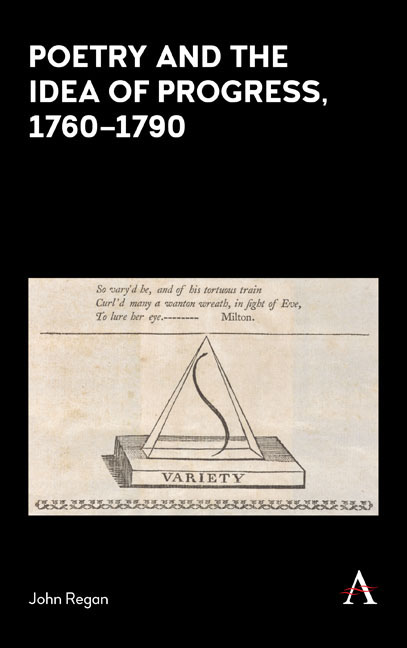Book contents
- Frontmatter
- Contents
- List of Figures
- Acknowledgements
- Introduction
- 1 Progress by Prescription
- 2 Thomas Sheridan and the Divine Harmony of Progress
- 3 ‘There Is a Natural Propensity in the Human Mind to Apply Number and Measure to Every Thing We Hear’: Monboddo, Steele and Prosody as Rhythm
- 4 ‘[C]ut into, distorted, twisted’: Thomas Percy, Editing and the Idea of Progress
- 5 ‘Manners’ and ‘Marked Prosody’: Hugh Blair and Henry Home, Lord Kames
- Afterword: Rude Manners, ‘Stately’ Measures: Byron and the Idea of Progress in the New Century
- Conclusion
- Notes
- Bibliography
- Index
1 - Progress by Prescription
Published online by Cambridge University Press: 21 June 2018
- Frontmatter
- Contents
- List of Figures
- Acknowledgements
- Introduction
- 1 Progress by Prescription
- 2 Thomas Sheridan and the Divine Harmony of Progress
- 3 ‘There Is a Natural Propensity in the Human Mind to Apply Number and Measure to Every Thing We Hear’: Monboddo, Steele and Prosody as Rhythm
- 4 ‘[C]ut into, distorted, twisted’: Thomas Percy, Editing and the Idea of Progress
- 5 ‘Manners’ and ‘Marked Prosody’: Hugh Blair and Henry Home, Lord Kames
- Afterword: Rude Manners, ‘Stately’ Measures: Byron and the Idea of Progress in the New Century
- Conclusion
- Notes
- Bibliography
- Index
Summary
Over 400 treatises on poetics were published throughout the eighteenth century in Britain. Discourse on the poetic line was febrile, and its various arguments, ruptures and vacillations rarely resolved themselves into anything resembling consensus. Nevertheless, eighteenth-century poetics was underpinned by a virtually unanimous presupposition that the English language has an innate ‘genius’, and that this could be better or worse served through prosodic features such as the arrangement of stress in poetic lines, the employment of rhyme and or the placement of pause. This nativist thesis of the aesthetic or communicative power of English was routinely, throughout the century, yoked to suggestions about the nature and development of humankind. If the English language's genius was assumed to be permanent and immutable, then man's actualization of that innateness at various moments in history could be read as an indicator of the progress of human art, intellect and taste. For this reason, theories on the composition of poetry and the qualities of great verse were very often freighted with wider suggestions about the progress of the human faculties. Commonly, writers on poetry would slip into the habitual language of the writer of progress narratives, as in this passage from Henry Home, Lord Kames: ‘The music of verse merits more attention than it has been honoured with. It is a subject intimately connected with human nature.’ As in poetry, so too in the wider tenor of discussion in the arts. Sir John Hawkins, in 1776, states that ‘the natural course and order of things’ is ‘ever towards perfection’, and he finds this as true of music as of physics and mathematics. Poetry in English formed one part of the wider progress matrix.
Just as the writers of prosodic treatises in the eighteenth century related the characteristics of metrical language to human development, later commentators have extrapolated from the disagreements at the discursive interface of eighteenth-century poetry and progress, to make assertions about the development of civilization and culture in that time. Perhaps the most familiar story charts the influence of texts such as Quatre Traitez de Poësies, Latine, Françoise, Italienne, et Espagnole of 1663 by Claude Lancelot, and Nicolas Boileau-Despréaux's L'Art Poetique of 1674 on anglophone writers on poetry in the age.
- Type
- Chapter
- Information
- Poetry and the Idea of Progress, 1760 , pp. 27 - 46Publisher: Anthem PressPrint publication year: 2018



